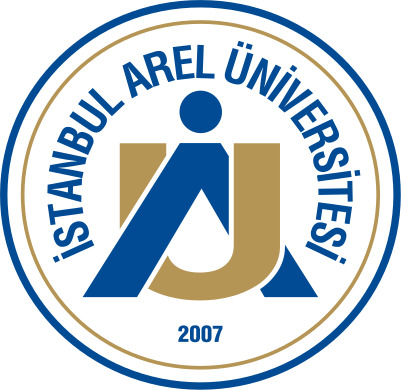Mechatronics
Overview
<!-- wp:paragraph --> <p><strong>Program Description</strong><br><strong>Mechatronics at Istanbul Arel University: Integrating Mechanics, Electronics, and Computing for Innovation</strong></p> <!-- /wp:paragraph --> <!-- wp:paragraph --> <p>The Mechatronics program at Istanbul Arel University is designed to provide students with a multidisciplinary education in the integration of mechanical engineering, electrical engineering, and computer science. This dynamic field combines the principles of mechanics, electronics, and control systems to create intelligent systems and advanced automation solutions used in industries ranging from robotics and manufacturing to automotive and aerospace. With a focus on both theory and practical application, students will gain hands-on experience in designing, analyzing, and controlling mechatronic systems, preparing them for careers as innovators and problem solvers in a rapidly advancing technological landscape.</p> <!-- /wp:paragraph --> <!-- wp:paragraph --> <p><strong>Program Mission and Vision</strong><br>The mission of the Mechatronics program at Istanbul Arel University is to develop highly skilled engineers capable of designing and optimizing intelligent systems by combining mechanical, electrical, and computational techniques. The program emphasizes innovation, practical problem-solving, and the application of cutting-edge technology in real-world settings. Its vision is to produce engineers who can lead the way in creating smart systems that improve automation, efficiency, and sustainability across various industries.</p> <!-- /wp:paragraph --> <!-- wp:paragraph --> <p><strong>Curriculum Structure</strong><br>The Mechatronics program provides a balanced curriculum that blends core principles of mechanical and electrical engineering with computer science and control systems. Key areas of the curriculum include:</p> <!-- /wp:paragraph --> <!-- wp:paragraph --> <p><strong>Introduction to Mechatronics:</strong> This foundational course introduces students to the principles of mechatronics and its applications. Students learn the basics of mechanical design, electrical systems, sensors, actuators, and the integration of these components to create automated systems.</p> <!-- /wp:paragraph --> <!-- wp:paragraph --> <p><strong>Mechanical Design and CAD:</strong> Students learn the principles of mechanical design, including the use of computer-aided design (CAD) tools to develop and prototype machine components. The course emphasizes the importance of precision and efficiency in mechanical system design.</p> <!-- /wp:paragraph --> <!-- wp:paragraph --> <p><strong>Sensors and Actuators:</strong> This course covers the types, applications, and functioning of sensors and actuators used in mechatronic systems. Students will learn how to select and integrate sensors for feedback and control in automated systems.</p> <!-- /wp:paragraph --> <!-- wp:paragraph --> <p><strong>Digital Electronics and Microprocessors:</strong> Students gain a deep understanding of digital electronics and microprocessor programming, focusing on their use in control systems, robotics, and automation. The course also covers the principles of embedded systems and real-time computing.</p> <!-- /wp:paragraph --> <!-- wp:paragraph --> <p><strong>Control Systems and Automation:</strong> This course focuses on the design and analysis of control systems used to manage the behavior of mechatronic systems. Topics include feedback control, stability, and the use of control algorithms to regulate machines and robots.</p> <!-- /wp:paragraph --> <!-- wp:paragraph --> <p><strong>Embedded Systems and Programming:</strong> Students learn how to design and program embedded systems for mechatronic applications. The course focuses on microcontrollers, programming languages (such as C/C++), and real-time software development for automation and robotics.</p> <!-- /wp:paragraph --> <!-- wp:paragraph --> <p><strong>Robotics and Autonomous Systems:</strong> Students explore the field of robotics, learning about robotic kinematics, dynamics, and control. The course covers the design and programming of robots, including both autonomous and semi-autonomous systems used in manufacturing, healthcare, and other industries.</p> <!-- /wp:paragraph --> <!-- wp:paragraph --> <p><strong>Mechatronics in Manufacturing:</strong> This course examines the role of mechatronics in modern manufacturing processes. Topics include automation, CNC machines, industrial robots, and smart manufacturing systems that improve efficiency and quality in production environments.</p> <!-- /wp:paragraph --> <!-- wp:paragraph --> <p><strong>Mechatronics Simulation and Modeling:</strong> Students use simulation tools to model mechatronic systems and predict their behavior under various conditions. The course focuses on virtual testing, system analysis, and optimization techniques in mechatronic design.</p> <!-- /wp:paragraph --> <!-- wp:paragraph --> <p><strong>Artificial Intelligence and Machine Learning in Mechatronics:</strong> This advanced course explores the application of artificial intelligence (AI) and machine learning (ML) techniques in mechatronics systems. Students learn how to apply AI to improve the performance and autonomy of robots and intelligent systems.</p> <!-- /wp:paragraph --> <!-- wp:paragraph --> <p><strong>Power Electronics for Mechatronics:</strong> This course covers the design and application of power electronics in mechatronic systems, including power supplies, motors, and actuators. Students learn to design efficient power control systems for various mechatronic applications.</p> <!-- /wp:paragraph --> <!-- wp:paragraph --> <p><strong>IoT and Smart Systems:</strong> The Internet of Things (IoT) is a key area of focus, as students learn how to integrate mechatronic systems with IoT devices for smart and connected systems. The course covers sensors, data communication, and cloud computing for real-time monitoring and control of mechatronic systems.</p> <!-- /wp:paragraph --> <!-- wp:paragraph --> <p><strong>Sustainable Mechatronics Design:</strong> Students learn to design mechatronic systems with a focus on sustainability. The course covers energy-efficient designs, environmentally friendly materials, and how mechatronics can contribute to sustainability in various industries.</p> <!-- /wp:paragraph --> <!-- wp:paragraph --> <p><strong>Capstone Project and Internship:</strong> The program culminates in a capstone project and internship, providing students with an opportunity to apply their knowledge in real-world mechatronics settings. The capstone project involves the design, development, and testing of a mechatronic system, while the internship provides valuable industry experience.</p> <!-- /wp:paragraph --> <!-- wp:paragraph --> <p><strong>State-of-the-Art Facilities and Labs</strong><br>Istanbul Arel University offers advanced laboratories equipped with the latest tools and technologies used in mechatronics. These facilities include robotics labs, embedded systems labs, CAD/CAE software, and automation systems, allowing students to gain hands-on experience in designing, building, and testing mechatronic systems.</p> <!-- /wp:paragraph --> <!-- wp:paragraph --> <p><strong>Emphasis on Practical Experience and Industry Collaboration</strong><br>The Mechatronics program emphasizes practical, hands-on learning through projects, labs, internships, and collaborations with industry partners. Students work closely with professionals from sectors such as robotics, automation, manufacturing, and automotive, gaining exposure to real-world applications of mechatronics.</p> <!-- /wp:paragraph --> <!-- wp:paragraph --> <p><strong>Career Opportunities</strong><br>Graduates of the Mechatronics program at Istanbul Arel University are well-prepared for a wide range of careers in various sectors of technology and engineering. Career opportunities include roles such as mechatronics engineer, robotics engineer, automation specialist, control systems engineer, embedded systems engineer, product designer, and research and development engineer. Graduates can work in industries such as robotics, automotive, aerospace, electronics, healthcare, and industrial automation.</p> <!-- /wp:paragraph --> <!-- wp:paragraph --> <p><strong>Shaping the Future of Mechatronics</strong><br>The Mechatronics program at Istanbul Arel University equips students with the skills, creativity, and interdisciplinary knowledge needed to excel in the rapidly advancing field of intelligent systems. By focusing on innovation, automation, and sustainability, the program ensures that graduates are prepared to lead the way in designing the next generation of smart machines and mechatronic systems, contributing to the future of technology and automation across industries.</p> <!-- /wp:paragraph -->
Program Description
The Mechatronics program at İstanbul Arel University offers a comprehensive curriculum designed to prepare students for successful careers in this dynamic field. The program combines theoretical knowledge with practical skills, ensuring graduates are ready for the challenges of the industry.
The program is taught by experienced faculty members who are leaders in their respective fields, providing students with insights into current industry practices and future trends.
Curriculum Highlights
- Advanced Research Methods: Learn cutting-edge research techniques and methodologies.
- Industry Analysis: Explore current industry trends and develop analytical skills.
- Leadership and Management: Develop essential leadership skills for managing teams and projects.
- Innovation and Entrepreneurship: Cultivate creative thinking and entrepreneurial mindset.
- Digital Transformation: Understand how technology is reshaping industries and businesses.
- Sustainable Development: Explore environmentally sustainable practices and their implementation.
- Global Markets: Study international market dynamics and global business operations.
- Technology Integration: Learn to leverage technology for improved business outcomes.
Requirements:
- Bachelor's degree (for Master's programs) or equivalent qualifications.
- Proven English language proficiency (IELTS 6.5+ or equivalent).
- Complete transcripts from previous education.
- A compelling letter of motivation explaining your interest in the program.
- Two letters of recommendation from academic or professional references.
- Valid passport with appropriate visa status or eligibility.
Benefits:
- World-class faculty with extensive industry experience.
- Modern campus facilities and cutting-edge learning environments.
- Strong industry partnerships providing networking opportunities.
- Internship opportunities with leading companies in the field.
- Comprehensive career services including job placement assistance.
- Access to a global alumni network for lifelong professional connections.
Begin your educational journey today.
Apply now and take the first step towards your future.






